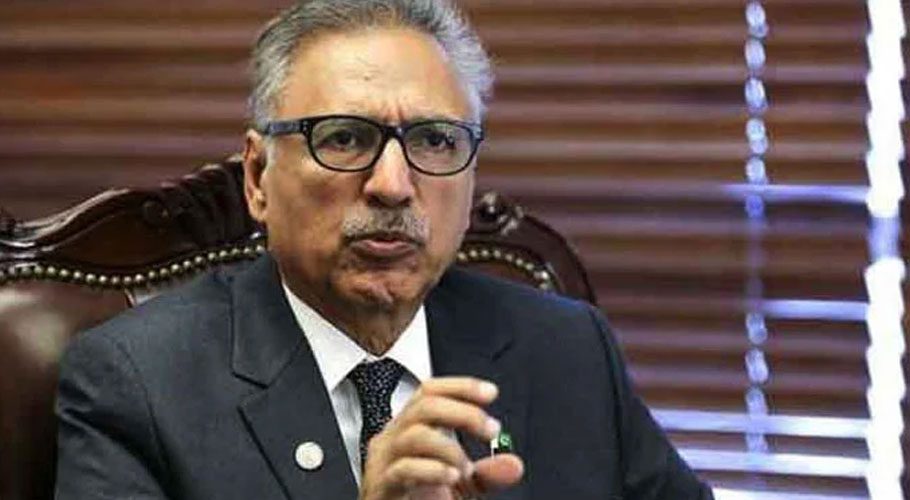ISLAMABAD: President Dr Arif Alvi on Wednesday penned down a letter to Election Commission of Pakistan (ECP) to propose dates for holding general elections in the country under Article 224(2) of the Constitution.
Earlier, the President dissolved the National Assembly on the advice of Prime Minister Imran Khan, hours after the National Assembly Deputy Speaker Qasim Suri declared the opposition’s no-confidence motion “unconstitutional” and prorogued the house without voting on it.
The Supreme Court is currently hearing the matter to decide the legality of the deputy speaker’s ruling and the subsequent actions and orders of the prime minister and the president.
ایوانِ صدر کی جانب سے الیکشن کمیشن آف پاکستان کو عام انتخابات کے انعقاد کے حوالے سے خط
خط میں الیکشن کمیشن کو قومی اسمبلی کی تحلیل کے 90 دن کے اندر الیکشن کرانے کیلئے تاریخ دینے کا کہا گیا ہے
— The President of Pakistan (@PresOfPakistan) April 6, 2022
In the letter, the president stated that under Article 48(5)(A) and Article 224(2) of the Constitution, the president had to appoint a date, not later than 90 days from the date of dissolution of the National Assembly, for holding general elections.
“In order to carry out the mandate of the Constitution of announcing the date of general elections, consultation with the Election Commission is required under Section 57(1) of the Elections Act, 2017,” the letter added.
A day earlier, a local daily while quoting sources reported that the electoral body could not hold polls within three months citing various legal hitches and procedural challenges.
However, the election commission rejected such reports and said, “Media reports about ECP not ready to conduct elections are totally fake,” adding that holding general elections is its legal responsibility and is ready to hold polls at any time.
Section 17 (2) of the Elections Act 2017 directs the ECP to delimit constituencies after every census is officially notified. The current delimitation had been carried out on the basis of provisional results of the 2017 census under a one-time waiver of the legal provision.



































